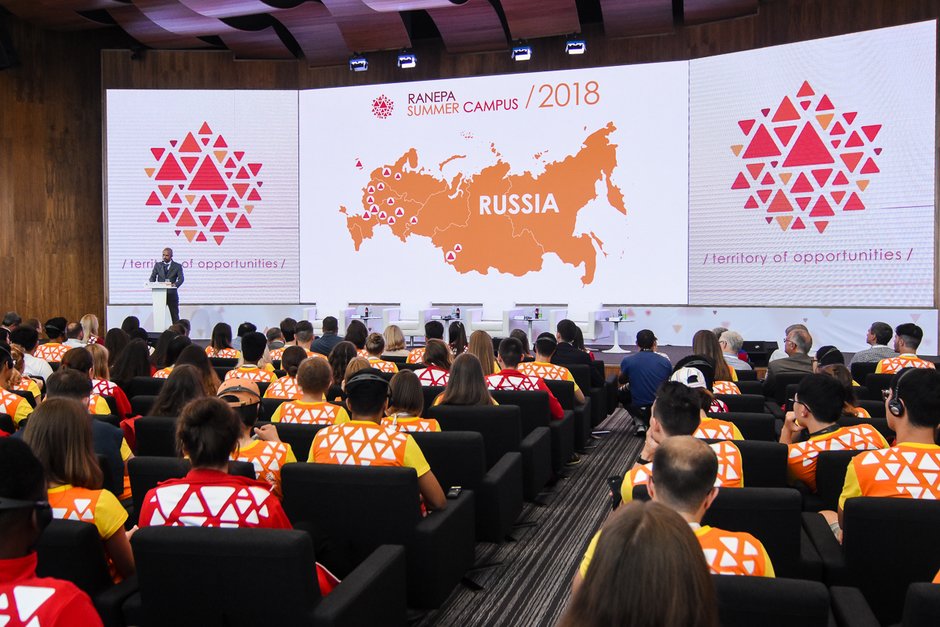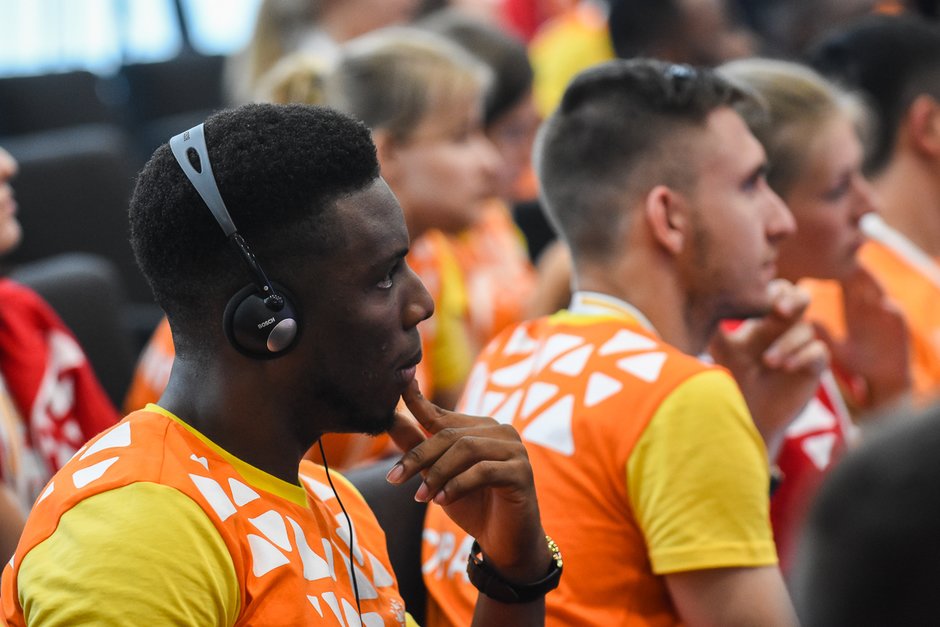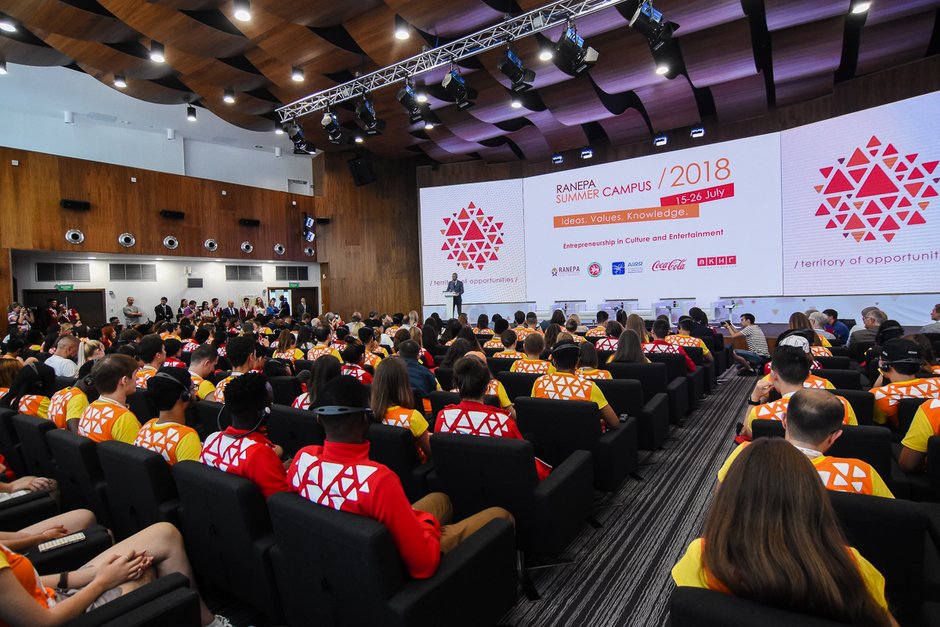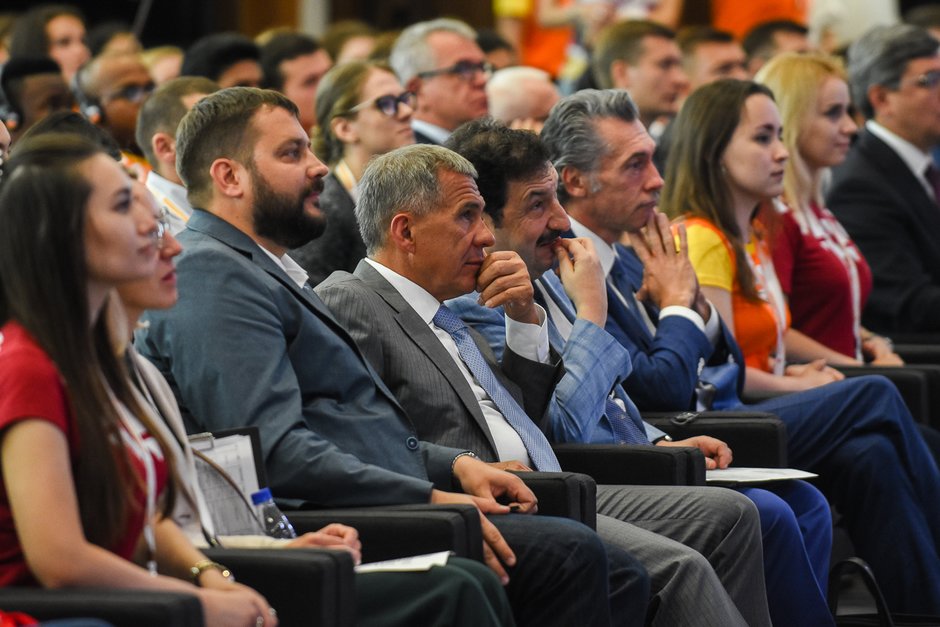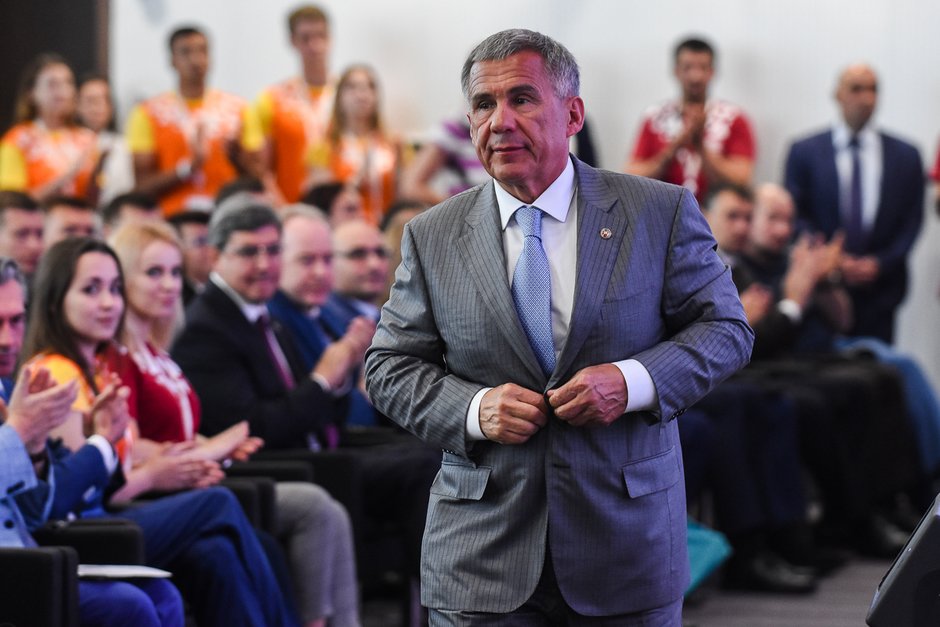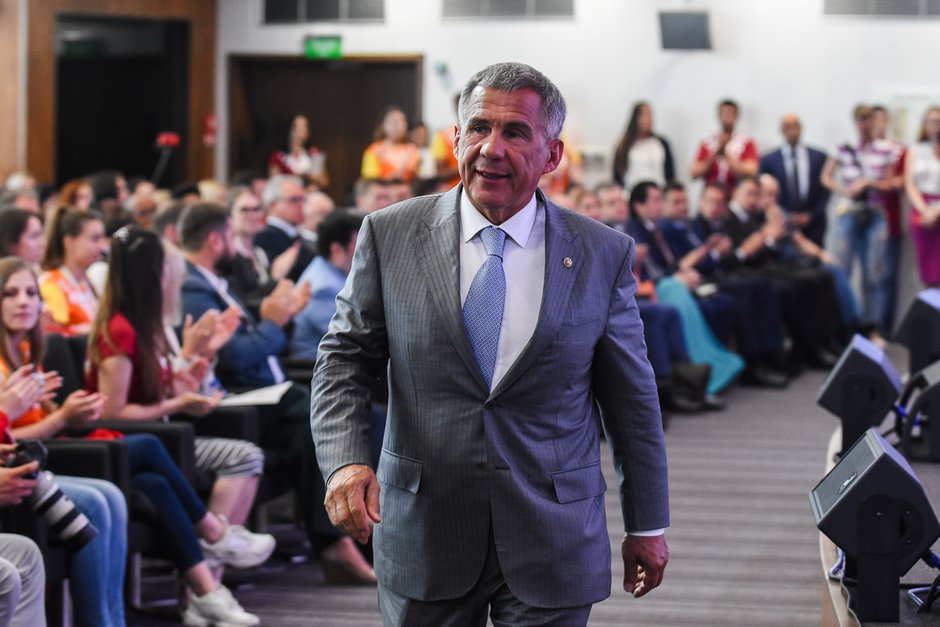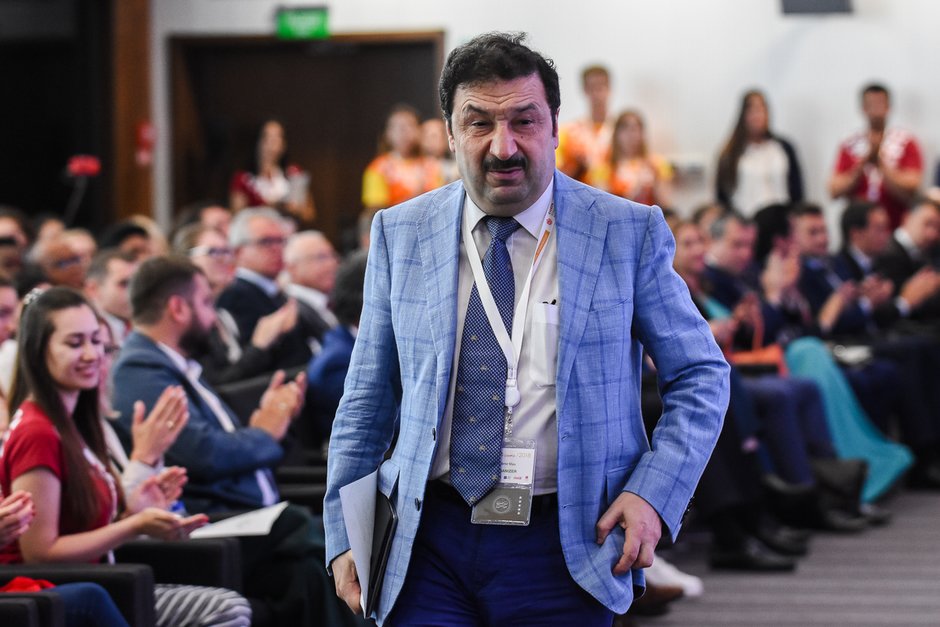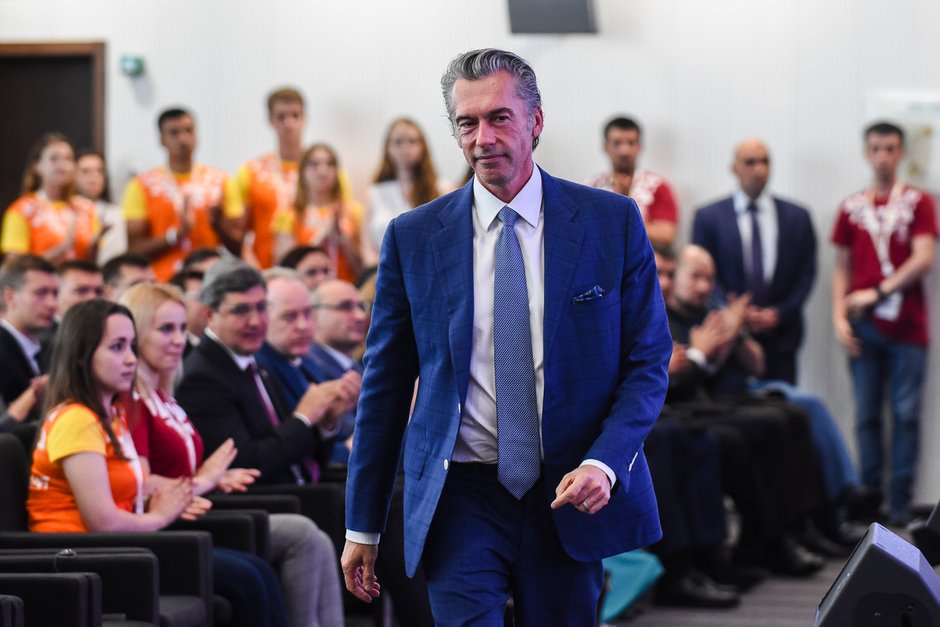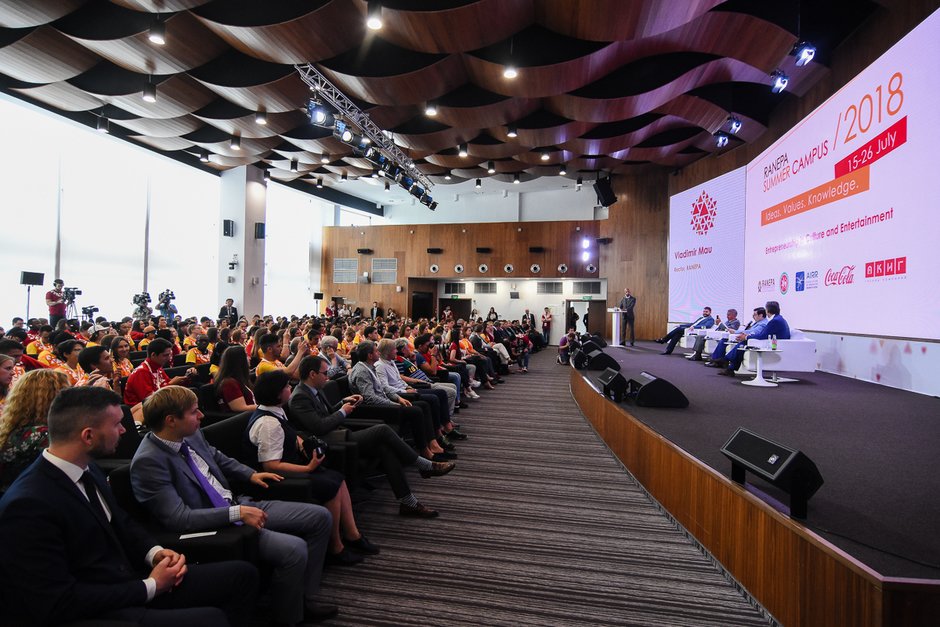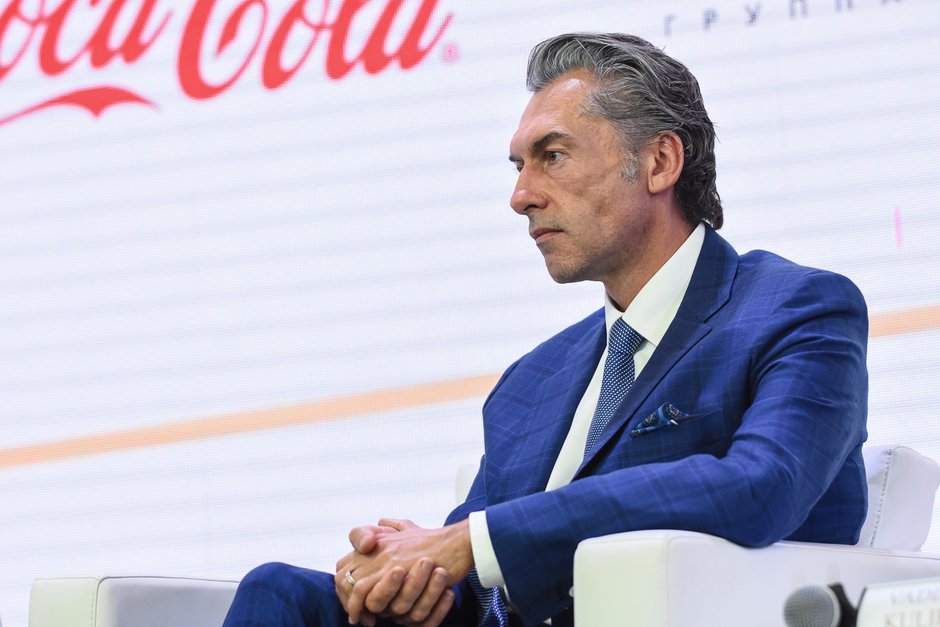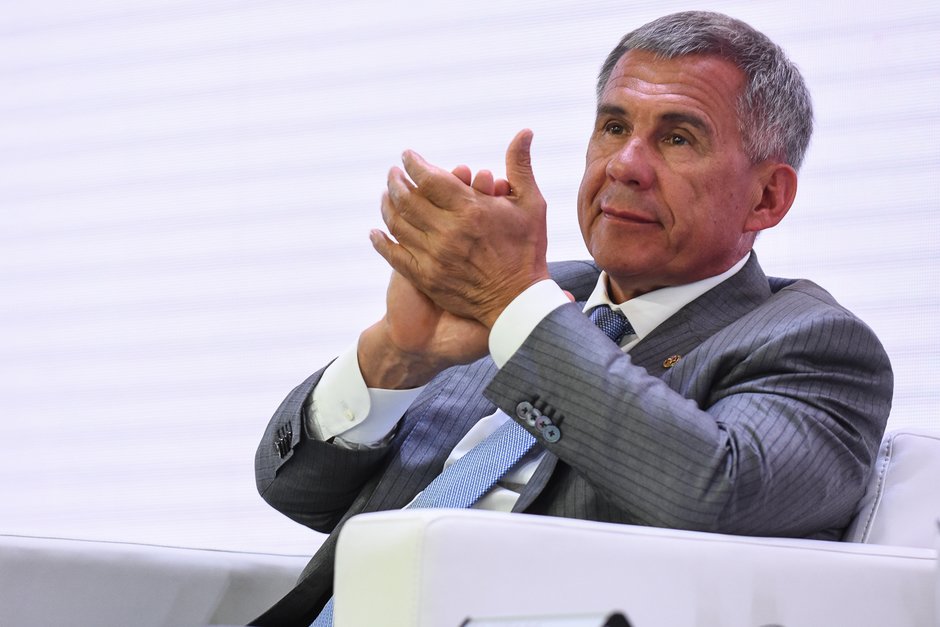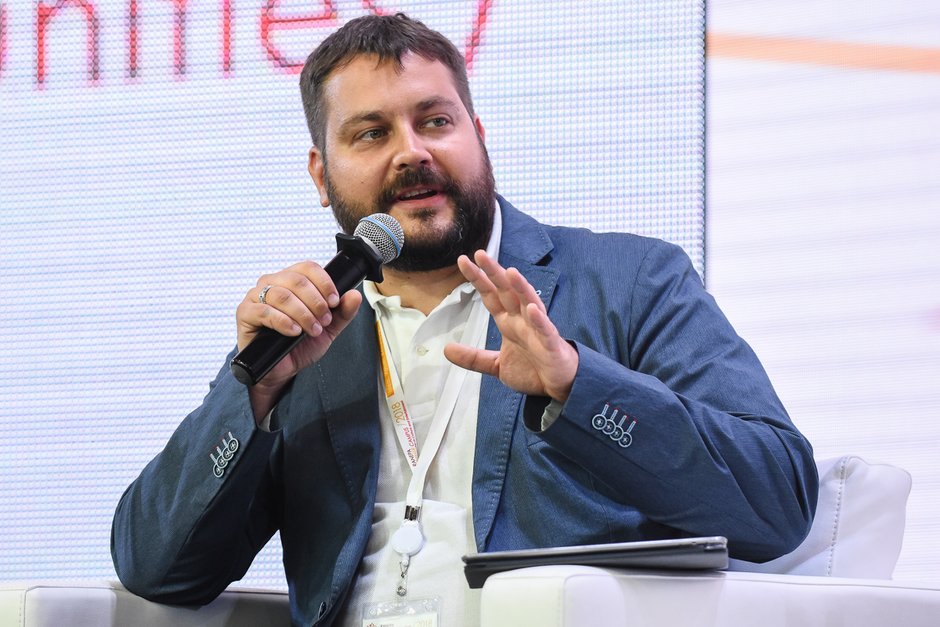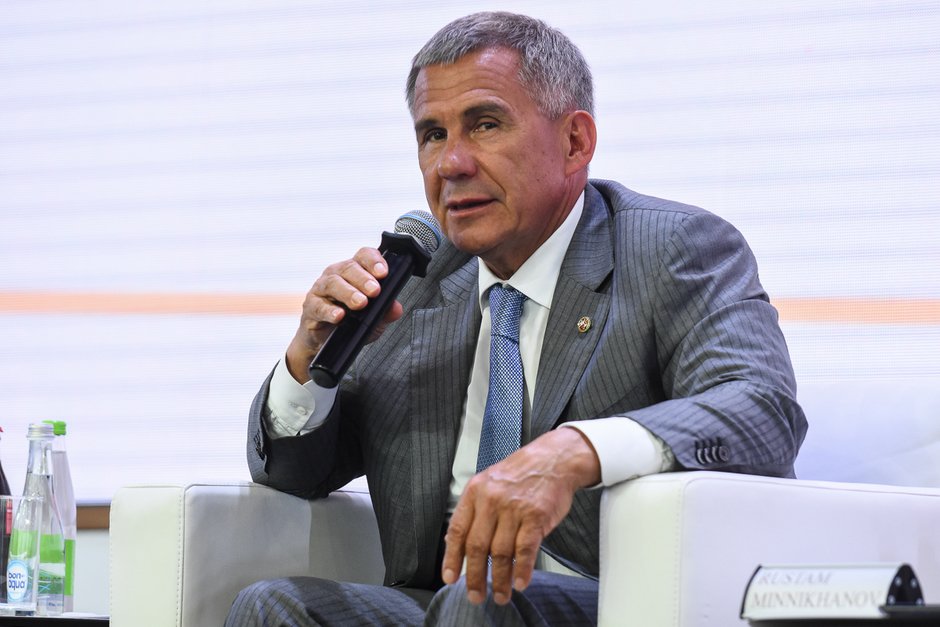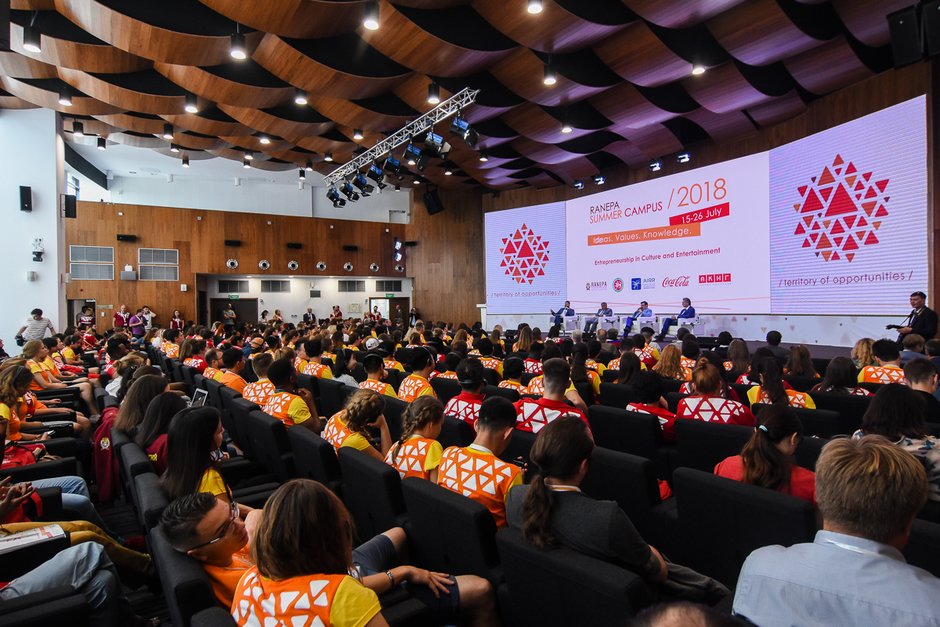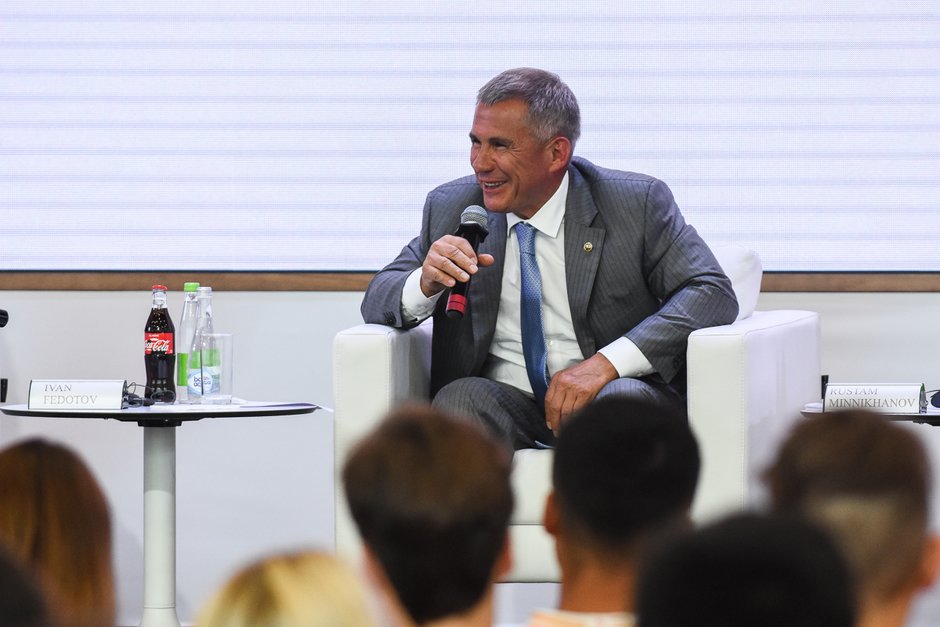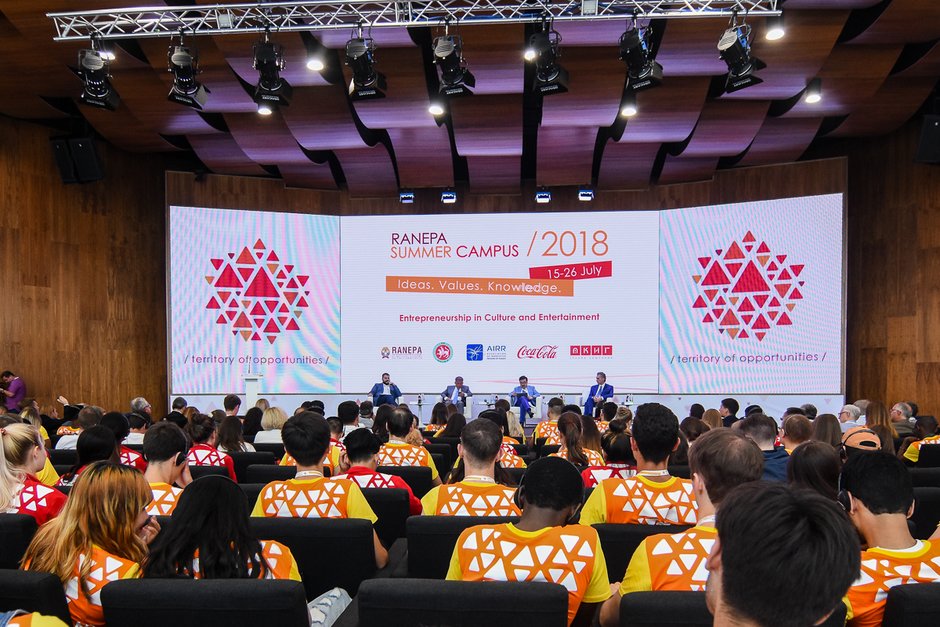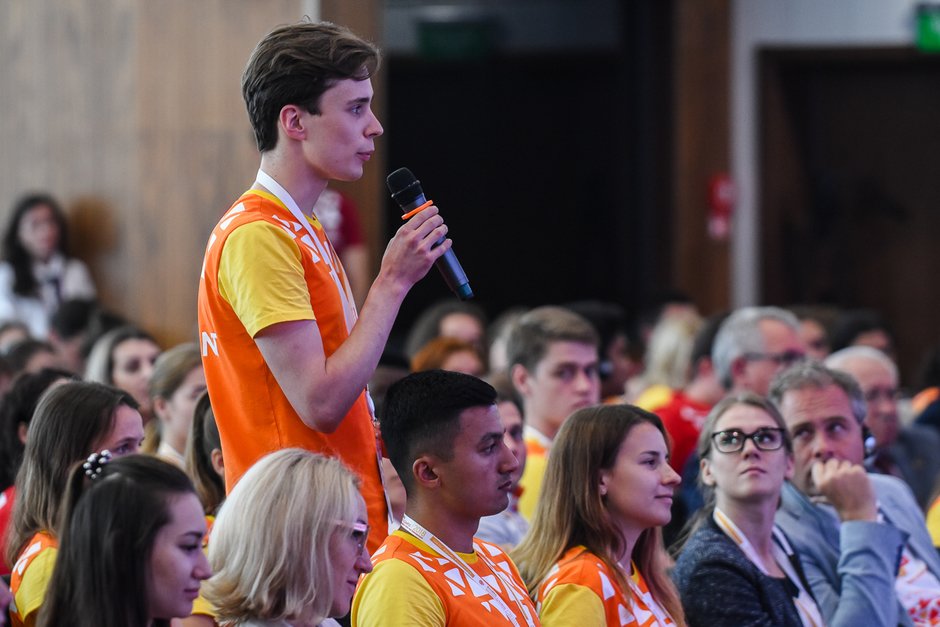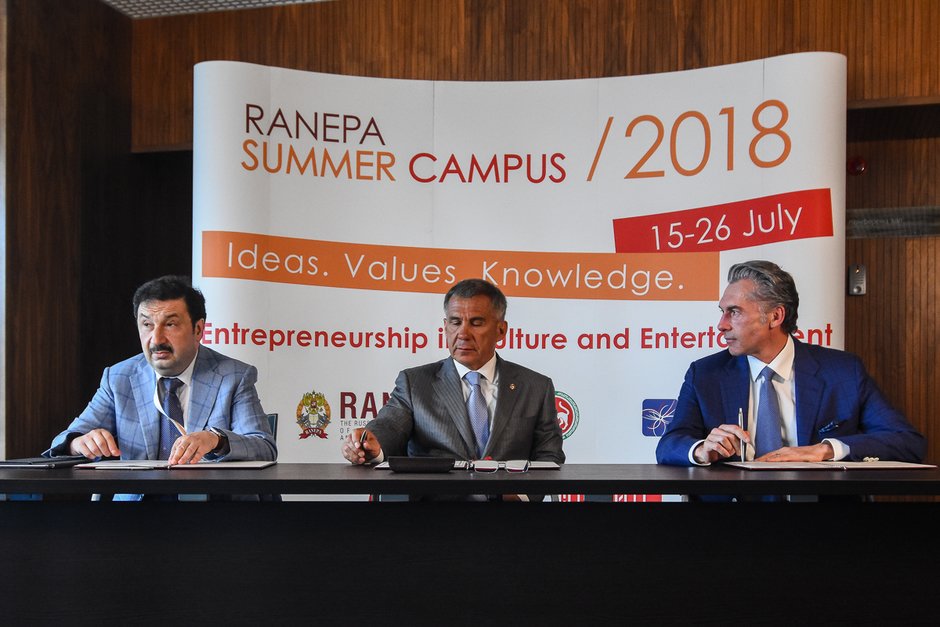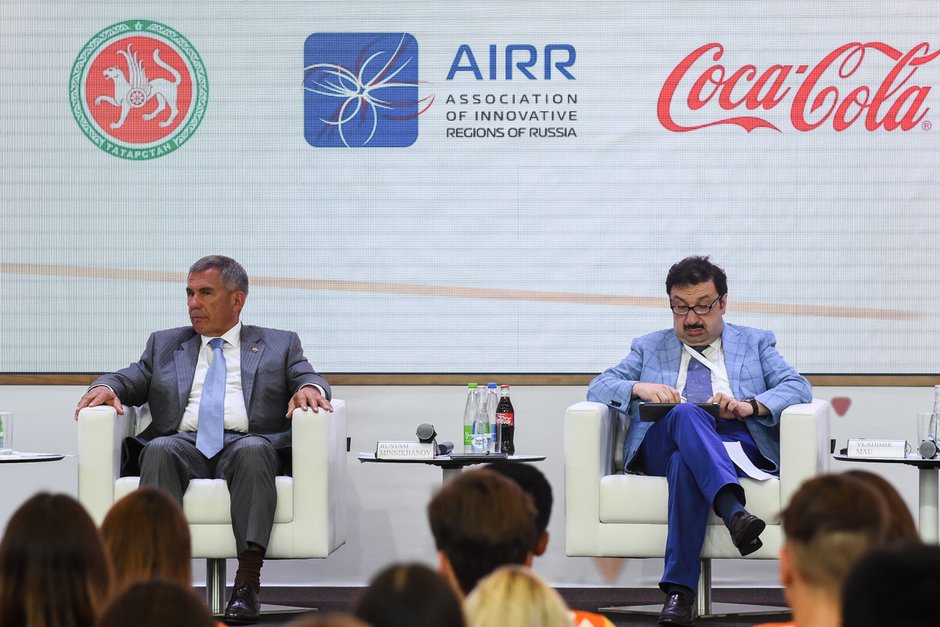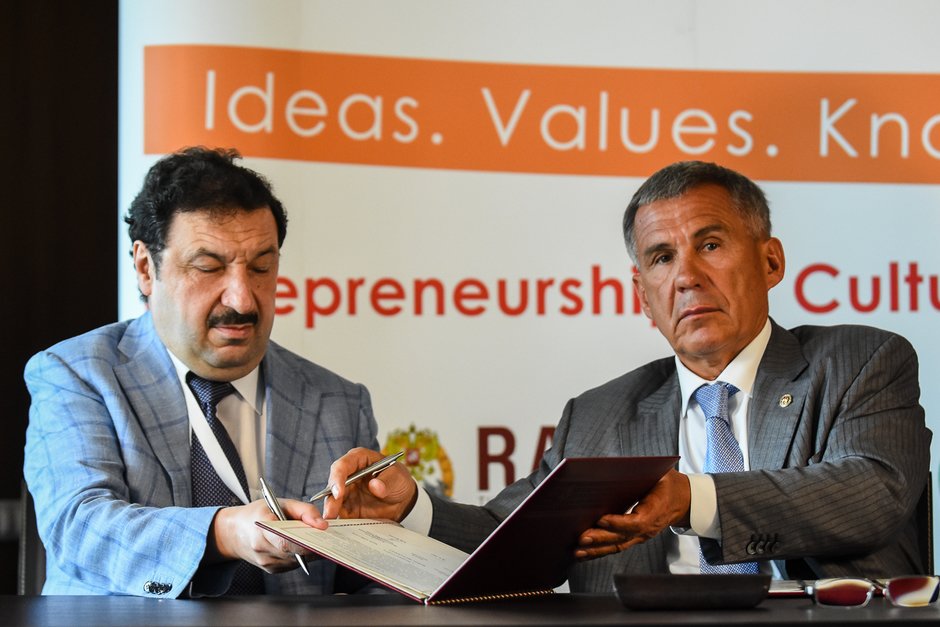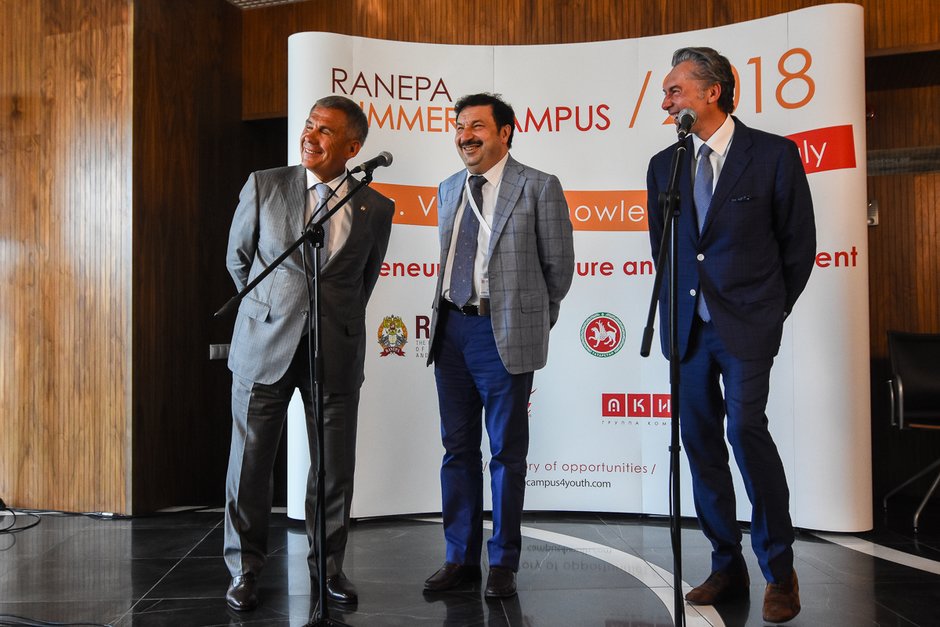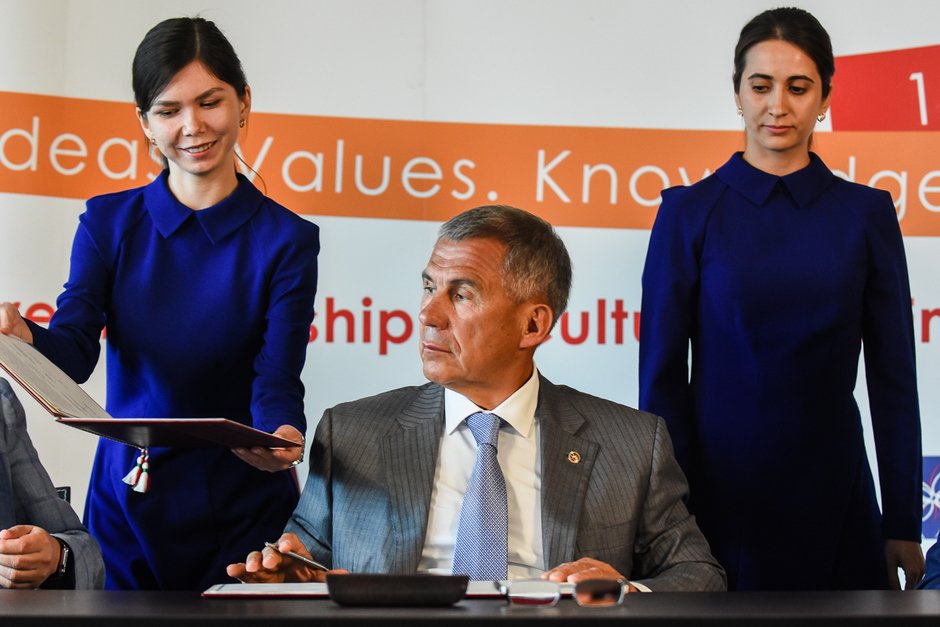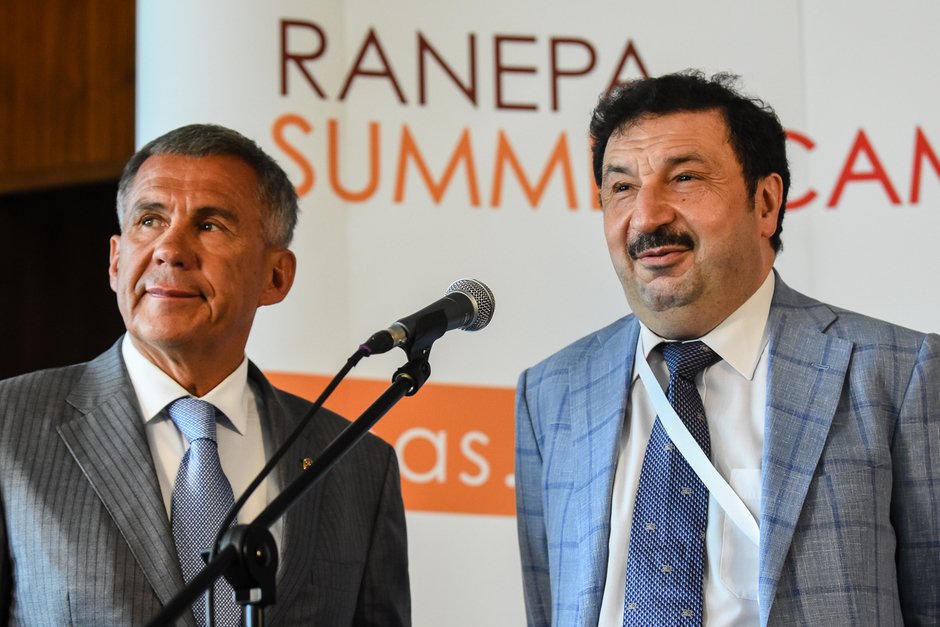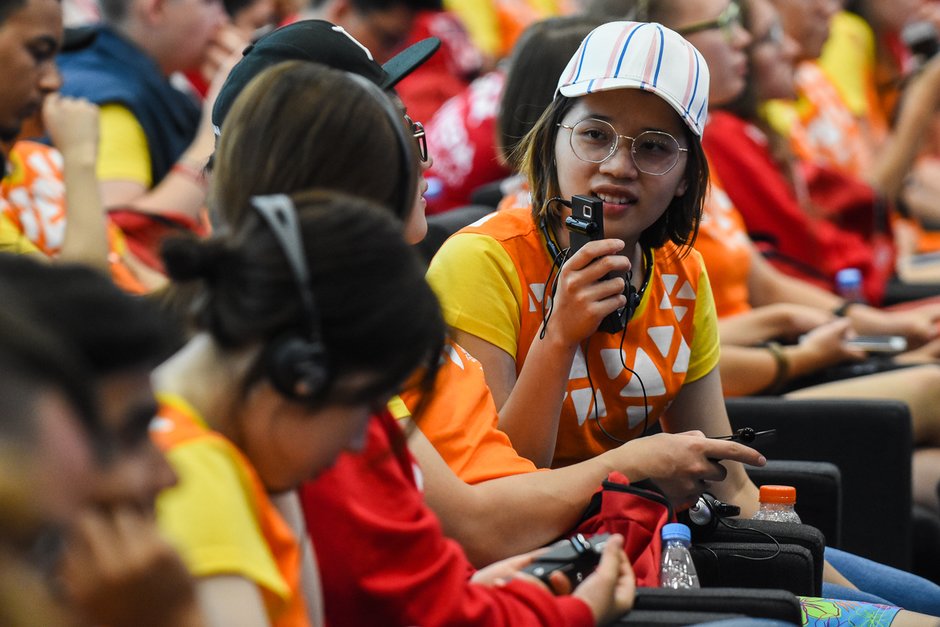''The most in-demand specialisations don’t exist yet''
Why Tatarstan pumps money into culture and entertainment, whether Tatarstan is ready to host ''halal tourists'' and sport helps to open to foreigners – a discussion at the opening of the Summer Camp in Innopolis
The 7 th Presidential Academy Summer Camp International Educational Forum opened in Innopolis on 16 July. Entrepreneurship in Culture and Entertainment has been announced the key topic this year. Right this issue was discussed by the forum's guests on the opening day. Realnoe Vremya tells the details of the very interesting discussion about problems of businesses, tourism, education and choice of the future profession by young people.
Entertainment industry as one of the economy's locomotives
This year over 200 students have become participants of the Summer Camp. Almost a half of them were foreigners (and represented 35 countries of the world). It should be reminded every year young people gather in the camp to listen to lectures and take part in interactive lessons with famous scientists, businesspeople and public workers, improve and ''become part of the intellectual elite''.
This time Entrepreneurship in Culture and Entertainment became the main topic of the forum. According to RANEPA Deputy Rector Ivan Fedotov, who moderated the discussion at the opening, this topic was chosen because now entrepreneurship in culture and entertainment were one of the most developing sectors of the economy.
''I have a report 'Entertainment Industry Review' prepared by a very respected company, PricewaterhouseCoopers. According to it, the USA is the country that spends on the Entertainment Industry most. In 2013, it spent $572 billion on this industry and will spend $725 billion in 2018. China is second: in 2018, they will spend $219 billion, while this sum was equal to $130 billion in 2013. Japan is third, while Russia ranks eleventh. I'm saying this to you to explain the development dynamics of this market. It's 10% in Russia: $27 billion were spent in 2013, the sum has reached $45 billion in 2018, excluding the FIFA WC. Here are the numbers we have, and this is why we chose the topic of entrepreneurship in culture and entertainment,'' Fedotov explained.
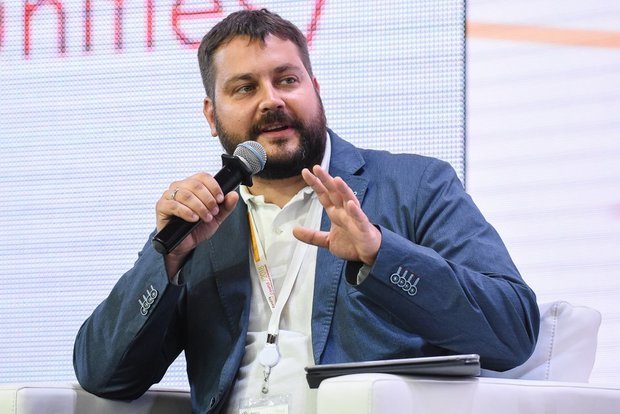
We need to note RANEPA Rector Vladimir Mau, Deputy Board Chairman of Gazprombank Vadim Kulik and Tatarstan President Rustam Minnikhanov, who was asked the first question opening the discussion, took part in the debate. The moderator asked the regional leader why the money around culture and entertainment industry in Tatarstan grew almost in arithmetic progression (more active than in Russia on average).
Minnikhanov said at the beginning he wasn't an ''expert in entertainment'' but rather a ''consumer'' and then linked the described tendency with the fact that residents of Tatarstan were mainly brought up in Tatar national festivities, for instance, at Sabantuy, which has already become an international holiday.
''We've built a big number of sports facilities in the last years. They're all used. We've been also actively working on public spaces for 3-4 years already – it's also an opportunity to hold events. But we have little entrepreneurship spirit in these areas anyway. We should find more applied things to have adapted entrepreneurship. We should learn from the countries where this topic is more developed. It's never late and shameful to learn. I will repeat I'm not a specialist and I would also be interested to know how you see this topic. And we shouldn't forget every region has its own peculiarities. This all needs to be considered and thought out,'' the president said.
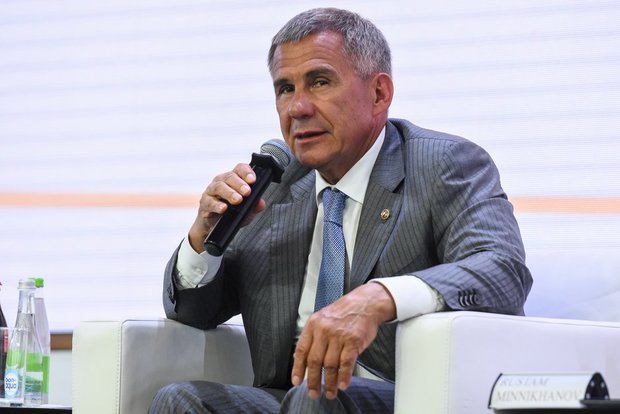
''Hard knowledge is substituted by communication, empathy, presentation skills today''
The next question of the moderator was addressed to Vladimir Mau – he had to tell the audience about the trends in education and forecast what awaited this sphere 15-20 years later. Before giving a detailed answer, Mau joked: ''I'm categorically against of assuming the responsibility for what I will say now, the responsibility for future generations, of course. As for today's generation, I'm always ready''.
''The topic of our discussion is very important and dangerous at the same time because hard knowledge is substituted by communication, empathy, presentation skills today. This, of course, is too much and is entertainment because a person should know what he's presenting before doing it. Feeling empathy doesn't mean multiplication table (and even integrals) isn't needed any more. The trends appear because knowledge is updated and accumulated extremely fast. I've recently faced an idea that one must know so much that it's better not to know anything. I can't share this opinion. It must be tough to learn, and it will be tough,'' the RANEPA rector joined the discussion.
According to the speaker, one of today's trends is linked with specialisation: Mau reminded there had been a ''fight'' for choosing a specialisation at school in the last 20-30 years, and we continue insisting on it, though the situation has changed a long time ago.
''Choosing a specialisation early can close the future for a kid. Education's width is more important. In post-industrial society, professions appear in front of us. Entering a university, a person should understand when he graduates it, the specialisations that don't exist yet will be in-demand. Specialisation doesn't reply to this challenge. It's necessary to be ready to constantly change qualifications, not to be tied to a narrow activity,'' the speaker said. ''Another trend I would mention is internationalisation. Universities will compete for the best students more on a global scale.''
Preparation to adopt halal lifestyle and benefit of event-related tourism
The discussion about entrepreneurship in culture and entertainment quite logically came to tourism. There were asked several questions on this topic at once, moreover, they were all addressed to the Tatarstan president. A RANEPA student was first to ask Rustam Minnikhanov a question about whether Tatarstan focused on event-related tourism or the region had ''structured plans to host tourists at any time''.
''You've probably made sure that the FIFA WC opened the country for foreign partners in a different way. In general, people know about our country either very little or from a bad perspective,'' Minnikhanov started to reply. ''In 2006, we started to promote Kazan to stage the World University Games. Nobody knew where Kazan was. I'm saying this because it's very complicated to tell about oneself without such important event-related occasions. But events will give nothing if there is no system – a hospitality system, for instance, the facilities that are ready to host events. This job needs to be done step by step. We made a decision we could draw the greatest attention to the republic through sport. We chose this trend and see a result of almost 3 million tourists [a year].''
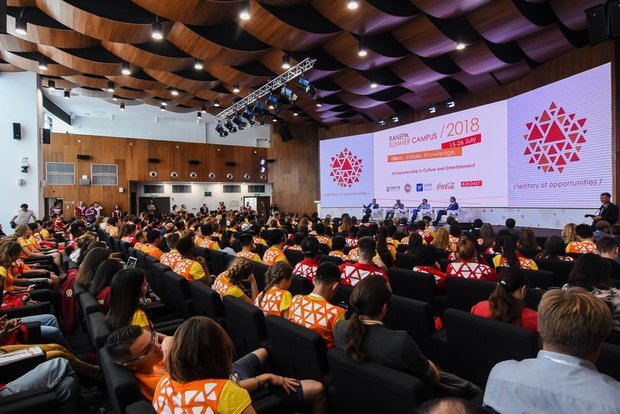
Kazan Federal University student Islam Fayaz also turned to the president who reminded that so-called halal tourism and halal lifestyle was actively discussed at Kazan Summit in 2018. The young man was interested in whether we were ready to host tourists from Muslim countries, especially such orthodox as Gulf countries.
''Halal tourism is one of the elements of halal lifestyle. All of these areas are new to us. We've just recently started to talk about halal food, and now we already have a special certification system. But, unfortunately, we're not fully ready for these challenges. Even Islamic banking requires a large-scale adaptation of our banking legislation, and, most importantly, specialists are needed. Many people have the following idea of Islamic banking: you went to a mosque, prayed and you're given money. Far from it!'' the president said. ''We should understand it's a huge market. The whole Persian Gulf leaves the area in summer because it's impossible to live there during this time. 20 million Muslims live only in Russia. It's a huge market. We lost it all in the Soviet era, while it's become in demand today. I'm sure we will be able to compete with the European market – it will be cheaper and not worse in Russia. The republic has possibilities, but we need to create infrastructure. And we will deal with it: halal tourism, halal medicine and education.
